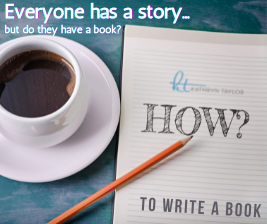Everyone has a story… but do they have a book?
That line is the premise for every show I host on Let’s Get Writing. Everyone does have a story. In this case, they literally have published stories – books, poems, songs – which are the focus of each interview. But what about those stories they write? What makes them engaging? Are there secrets to writing a great book?
How to write a book
“I’d like to write a book someday”. Have those words ever entered your thoughts or, better yet, passed over your lips? In the entirety of your life, have you ever pondered how to write a book? And have you done it or is it still a dream?
Exploring how writers think is not something we always have the privilege of doing so with Let’s Get Writing I feel I’ve discovered the perfect way. Each week I interview a guest from any genre of writing or publishing. We share ideas, stumbling blocks, tips, accomplishments with the goal of bringing great entertainment and inspiration to viewers. I enjoy digging into the backstory of their projects.
What is the secret to writing a book?
With more than 70 interviews behind me at this point, you’d think I’d have a short answer to this question “the secret to writing a book”, but I don’t. There are as many ways to write a book as there are to sing a song.
However, some of the gems I’ve heard time and time again are:
- Write every day.
- Don’t worry about the quality or quantity – just make the commitment to get something down.
- The crappy first draft is just that, crappy, but it’s your blueprint.
- The best investment is a good editor.
- Have the ending in mind before you start.
Speaking of which, what does make a great ending?
What makes a great ending for a book? I may be traditional but I love it when things are wrapped up. The same goes with movies. I don’t want to ponder for the rest of my days about what might have happened.
Here are some thoughts on great endings. Conclusion: A reader should walk away with a satisfied feeling that the story is complete. Yes! Yay! Transition: The ending should bring a strong closure to your character development. The main character has learned important lessons along the way and the ending should solidify their transformation.
So, even if you don’t know how your novel ends, you do at least need to know who your character will be in the end, so that you can write a story and emotional journey to get them there. And that arc of transformation will keep your audience involved until the very last page. That’s what you call a great ending.
Here is a link to “The 100 most powerful and poignant closing lines from literature”. https://www.stylist.co.uk/books/the-best-100-closing-lines-from-books/123681
I really enjoyed going through this article and reading those closing lines. It was also kind of fun to see how many of the books I’ve read.
And now, I’ve reached The End of this blog.
One last thought, if you’d like to subscribe to my channel and stay up-to-date on all our new shows and videos, you can do this at www.youtube.com/kathryntaylortv. I appreciate your support and love.
With love,
Kathryn

